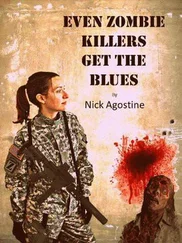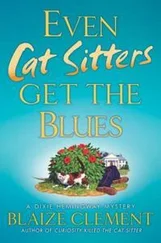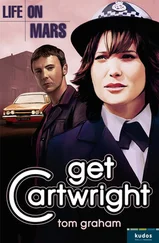Another try. Suppose that upon a late evening with thirsty guests in your home your supply of beer runs dry. You slip out and aim your car in the direction of the only store in the area open after midnight, a half-case of Budweiser your goal. Well, a couple of blocks from your house, the store not yet in view, you are subjected suddenly to an intense sensation of being spied upon. You scan for patrol cars but spot none. And then you see it, in the sky (its altitude and size indeterminable due to lack of reference points), a whirling disc outlined by concentric circles of white and green light with a scattering of rapidly blinking purple lightpoints in its center. It hovers — you are positive it is interested in you —beyond and above the hood of your car, whirling all the while, occasionally darting to the left or right with incredible speed. Before you gain the presence of mind to decide whether to brake or accelerate, the outer rings of white and green are extinguished and the small purple lights arrange themselves in a recognizable pattern — a pattern of a duck's foot — against the starless sky. Seconds later, the whole craft disappears. You drive on to the store, of course, because there's nothing else (for the moment) you can do. A while later, stunned and excited, you arrive home with the beer (you forgot Rick's cigarettes), where you are faced with the problem of what, if anything, to tell your friends. Maybe they won't believe you; they'll insist you're drunk or lying or worse. Maybe they'll blab too much; word will get to the press; you'll be hounded by skeptics and nuts. Should you call the radio station to ascertain if anyone else saw what you saw? Do you have a moral obligation to notify the nearest military installation? The way you handle these questions, as well as how much thought you eventually devote to the meaning of the UFO's visual message — why, you might wonder, a duck's foot? — would be determined by your basic personality, and with all tender respect, that is of small concern to the author. The significant query here is this: would you not, sooner or later, no matter who or what you are, feel a rise in spirit, a kind of wild-card joy as a result of your encounter? And if this elevation, this joyousness, can be attributed in part to your contact with. . Mystery. . cannot it equally be attributed to your abrupt realization that there are superior forces “out there,” forces that for all their potential menace, nevertheless might, should they elect to intervene, represent salvation for a planet that seems stubbornly determined to perish?
Take now the clockworks. Both the clockworks, the original and the Chink's. The clockworks, being genuine and not much to look at, don't generate the drama of an Earth-tilt or a flying saucer, nor do they seem to offer any immediate panacea for humanity's fifty-seven varieties of heartburn. But suppose that you're one of those persons who feels trapped, to some degree, trapped matrimonially, occupationally, educationally or geographically, or trapped in something larger than all those; trapped in a system , or what you might describe as an “increasingly deadening technocracy” or a “theater of paranoia and desperation” or something like that. Now, if you are one of those persons (and the author doesn't mean to imply that you are), wouldn't the very knowledge that there are clockworks ticking away behind the wallpaper of civilization, unbeknownst to leaders, organizers and managers (the President included), wouldn't that knowledge, suggesting as it does the possibility of unimaginable alternatives, wouldn't that knowledge be a bubble bath for your heart?
Or is the author trying to ease you into something here, trying to manipulate you a little bit when he ought to be just telling his story the way a good author should? Maybe that's the case. Let's drop it for now.
But look here a minute. Over here. Here's a girl. She's a nice girl. And she's a pretty girl. She looks a bit like the young Princess Grace, had the young Princess Grace been left out in the rain for a year.
What's that you say? Her thumbs? Yes, aren't they magnificent? The word for her thumbs has got to be rococo — rocococototo tutti! by God.
Ladies. Gentlemen. Shhh. This is the way truth is. You've got to let those strange hands touch you.
. . the Eskimos had fifty-two names for snow because it was important to them; there ought to be as many for love
— Margaret Atwood
17.
NEWSPAPERS KEEP PHOTOGRAPHS of famous persons in their files. When one of the famous dies, a staff artist (the same guy who draws the circles around fumbled footballs) borrows the dead celebrity's photo folder and with an air brush obliterates the highlights in his eyes.
It is standard procedure on most American newspapers. By thus visually distinguishing those with us from those gone, the press shows its respect for, or its fear of, death. Whenever you see a picture of a deceased notable in the papers, chances are his eyes will be dull and flat — as if the sparkle of his living had been divided among his next of kin.
In the official Postal Service photograph of the President of the United States, the process seemed almost to have been reversed. Eyes that originally had been inert and shallow had been made with the retoucher's brush to twinkle warmly and project volleys of paternalism and health.
Sissy Hankshaw was standing beneath that very portrait of the President, in the lobby of the LaConner, Washington, post office. She looked at the President's portrait as if it were the benign fantasy of some Jehovah's Witness cartoonist — while she waited at the counter for her mail.
LaConner, Washington, was one of a half-dozen places around the country where Sissy received letters. The other places were Taos, New Mexico, Pine Ridge, South Dakota, Cherokee, North Carolina, Pleasant Point, Maine, and one other town. What these post offices had in common was that they all were on or adjacent to Indian reservations.
The President in the picture on the LaConner, Washington, post office wall that morning was not Ike. Oh no, Ike had led the people during Sissy's childhood and, except as to how they might best grip a golf club, had never thought of thumbs at all. Sissy had fled Richmond just as the Eisenhower Years were dying. (Dying of boredom, we might say — although the Eisenhower Years and the fifties were perfectly suited for one another; they went together like Hi and Lois. It was when the Eisenhower Years returned , in 1968 and, worse, in 1972—times too psychically complex, technologically advanced and socially volatile to endure simple-mindedness on such a grand scale — that a civilization already green around the gills began to flip-flop in earnest.)
More than ten years had passed since Sissy made her move; a decade during which she hitchhiked obsessively, constantly, solitarily, marvelously. Among people who pay attention to such things, she had become a legend.
Being a legend is not always financially gainful. There is no United Federation of Legends union to ensure that members be compensated for their legendary labors at a minimum wage of $5.60 an hour. Legends have no lobby in Washington, D.C. There isn't even a Take a Legend to Lunch Week. Consequently, Sissy had to rely on something other than her legendary hitchhiking for eats (for Tampax and toothpaste and repairs to her shoes). That is why she occasionally worked for the Countess. And it was because the Countess had to have a means of contacting her that Sissy checked post office general delivery whenever she was near LaConner, Taos, Pine Ridge, Cherokee, Pleasant Point or that other place. Certainly, nobody but the Countess ever wrote to her. Sissy had neither heard from nor contacted her family since she had hitched off into the sunset. (Actually, of course, it was night when Sissy made her getaway, but in remembering South Richmond it is easy to confuse the memory of old brick with the memory of sunsets, as it is easy to inadvertently mingle in one's recollections the odor of toasting tobacco with the odor of blood: another of the brain's little practical jokes.)
Читать дальше












